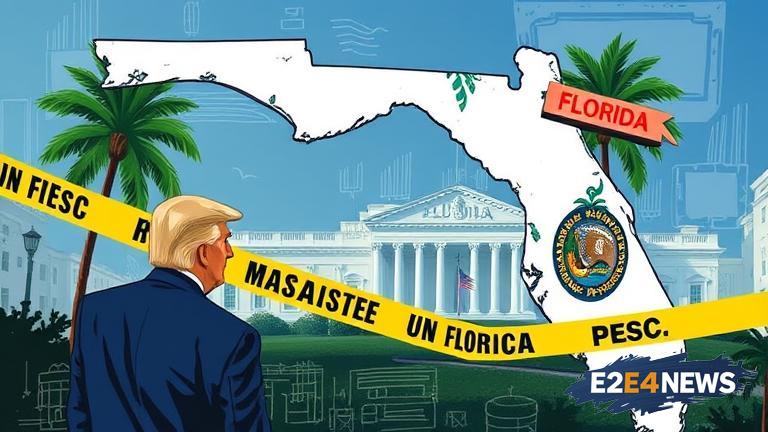In a shocking move, the state of Florida has expanded its death penalty to include additional crimes, following the recent attempted assassination of former President Donald Trump. The new legislation, which was signed into law by Governor Ron DeSantis, aims to increase the severity of punishments for those who attempt to harm or kill high-profile individuals, including politicians and public figures. The attempted assassination of Trump, which occurred earlier this month, has sparked widespread outrage and calls for increased security measures. The new law expands the list of crimes that are eligible for the death penalty, including attempted murder of a law enforcement officer, attempted murder of a public official, and terrorism-related offenses. Proponents of the law argue that it is necessary to protect the public and prevent future attempts on the lives of high-profile individuals. However, opponents of the law argue that it is too broad and could lead to unfair and unjust applications of the death penalty. The law has also sparked concerns about the potential for racial bias and discrimination in the application of the death penalty. Despite these concerns, the law has been met with widespread support from Republicans and law enforcement officials, who argue that it is necessary to keep the public safe. The expansion of the death penalty in Florida is part of a larger trend of states increasing the severity of punishments for certain crimes. Other states, including Texas and Alabama, have also expanded their death penalty laws in recent years. The move has been met with criticism from human rights groups and advocates for social justice, who argue that the death penalty is inhumane and ineffective. The American Civil Liberties Union (ACLU) has released a statement condemning the new law, arguing that it is a step backwards for human rights in the United States. The National Association for the Advancement of Colored People (NAACP) has also released a statement, arguing that the law will disproportionately affect communities of color. The new law has also sparked concerns about the potential for wrongful convictions and executions. According to a report by the Innocence Project, there have been over 160 exonerations of individuals who were wrongfully convicted and sentenced to death in the United States since 1973. The report highlights the need for increased safeguards and protections to prevent wrongful convictions and ensure that the death penalty is applied fairly and justly. The expansion of the death penalty in Florida is a complex and contentious issue, with proponents and opponents on both sides presenting strong arguments. As the debate continues, it remains to be seen how the new law will be implemented and what impact it will have on the state’s justice system.
